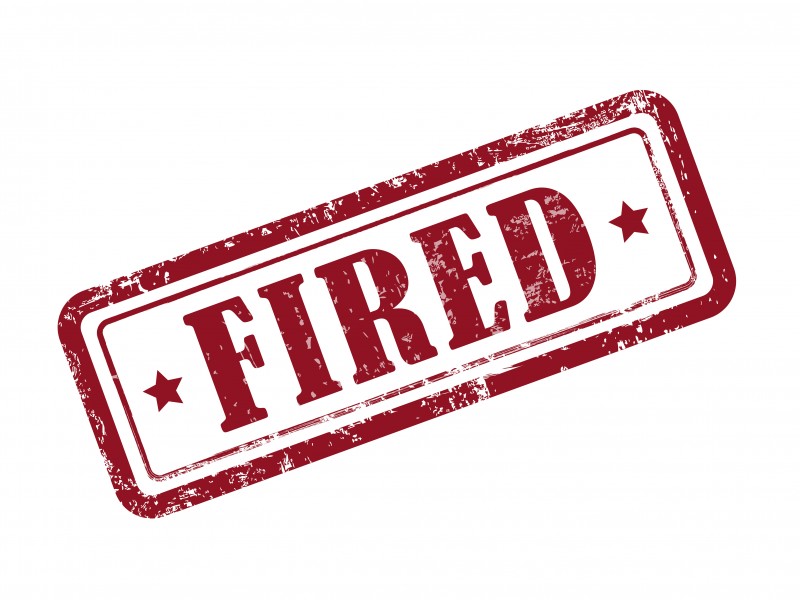
I've always loved David Bowie. If you don't at least respect this man, I have to question our friendship. Knowing how I feel about Mr. Bowie, I decided to start this article with the song "Changes." Last week, I went to work and received a text from my direct supervisor stating, "Can you meet today to discuss some performance issues?" I went to that meeting and came out without a job. At that point, two songs started playing in my head simultaneously. The first one was the aforementioned song, "Changes." The second one, and the one that led me to this article, was "Surprise, You're Dead."
RECENT: New Rules for Being a Strength Coach
It seemed like a fitting song. If you don't know this song, let's return to the '90s. There was a ton of great music in the early '90s before Nirvana. A little band that entered the scene and has never left my ears. That band is Faith No More. They have persevered for years, making great album after great album. If you aren't a fan, please refer to my rule on non-Bowie fans. With these two songs in your head, let me discuss a few lessons I learned and the mistakes I made that led me to where I am. I'll also even tell you what I did right to arrive where I am today.
Image credit: kchung © 123rf.com
Lesson 1: You will be fired.
There are only two types of strength coaches: the ones who have been fired and the ones who will be fired. If you don't believe me, look at those who have been in the field for years. It's rare to find someone who has coached for more than a decade and has yet to be fired. So accept this fact and prepare for this fact. The industry isn't going to change and all of the sudden we have job security, but we can create financial security by being smart with our money. My mistake was not saving enough, but what I did right was save some so that I won't go broke if I'm not working for a few months. Before you buy that new car, ask yourself, "If I'm fired tomorrow, can I pay this car off?
Lesson 2: Show deference to your boss.
This is one area where I messed up. I didn't like or care for my boss, and because of that, I didn't spend much time with him. Don't get me wrong, communication is a two-way street. But I needed to do more. I know some people will say, "But Hamer, you stuck to your guns." Well, are you better doing most of what you want with a job or doing none of what you want without a job? Only you can answer that one.
Lesson 3: There is a huge difference between job security and career security.
This is the biggest take-home, so get your notebooks ready. I don't know where I originally heard this, but I've used it with all my young staff for years. Job security is what most people have and want. Job security means that you won't lose your job. Career security is a much stronger relationship to your industry. Career security means that when you're fired, there will be people lining up to hire you. Since I was let go, I started part-time work for a good friend of mine and have received scores of calls and leads on jobs. I've also had two people approach me with opportunities to do things outside of coaching. For all the years I've spoken about career security, I wondered if I was full of crap. I'm not. It's real. Trust me. Learn from those before you, do the best work you can, and things will work out.
Lesson 4: Don't buy into the myths.
I actually spoke to my father about this lesson last night. There is a myth that we all repeat: "It's easier to get a job when you have a job." This isn't 100% correct. I get the premise: when you have a job, you can be selective. But when you're unemployed, you've done a great job, and you have career security (go back to the third lesson), you will have many people looking and trying to find you a job. I've spoken to coaches, businessmen and women, athletic trainers, athletic directors, and a slew of others who are out there helping me find a job.
Lesson 5: Know when to leave.
I should've left my job years ago. But I really liked the presidents I worked under, the athletes were great, and I worked with some coaches (good and bad) whom I learned from. The mistake I made is that I believed that things would work out for my staff and me if I just did my best and worked hard. I was wrong. I should've left and found somewhere else that would've allowed me to grow more effectively.
During my time at my former place of employment, I founded our leadership academy, served on committees ranging from wellness to black history month, and began a fundraising arm of strength and conditioning. Clearly, I wanted to do more for the university than just be a strength coach. What I should have done is picked up and left when I had the chance so that I could take what I did somewhere that would grow with me. I was satisfied, and as Jamey Jasta told us, "Satisfaction is the death of desire!"
Lesson 6: Strength and conditioning as an industry is in trouble.
I don't want to be a salty old man, because I think I'm an optimist, but Joe Kenn said at the NSCA this year (and I paraphrase), "Show me a single-sport strength coach and I know I can out-coach them." Joe hit the nail on the head. Right now, we have too many cases of the tail wagging the dog. How many coaches are making the decision on the future of strength coaches? We have no one above us who is fighting for us. I know for a fact that I didn't have anyone fighting for my staff and me. I'm not complaining; I'm stating that we as an industry need to get a seat at the leadership table or we will be just low-level assistant coaches. If you don't believe me, see what happens when your team has three straight losing seasons and the coach is on the hot seat. I promise you that your seat will be hotter than the coach's. Find ways to get into the administrators' ears about what we do. I failed here.
These are just a few of my thoughts and lessons about how we as an industry need to work to improve what we do so that fewer strength coaches get fired for doing their jobs. As I said, I'm not saying that I haven't made mistakes. I make mistakes daily, but our industry doesn't allow mistakes. If you believe that you don't make mistakes, I feel bad for you and your athletes.












Good luck!
Good Luck!
I am happy with what happened and I’m sure something will work out for me. I also liked reading this so figured I’d share https://joegurley.wordpress.com